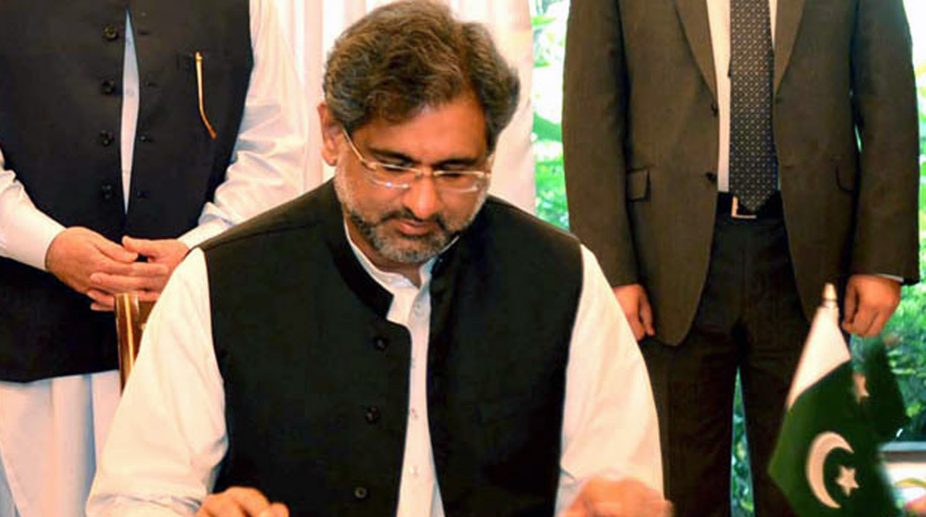Reforms in states
The first generation of fiscal reforms in the states started with the enactment of Fiscal Responsibility and Budget Management Acts (FRBMA) between 2006 and 2010 at the prodding of the 12th Finance Commission.

Shahid Khaqan Abbasi (Photo: IANS)
The disputes between India and Pakistan over the Indus Water Treaty can be resolved within the context of the agreement itself, Pakistan’s Prime Minister Shahid Khaqan Abbasi has said.
Advertisement
Abbasi, who was responding to a question on the Indus Water Treaty, said there were provisions in the treaty on how to resolve the disputes.
Advertisement
“It’s a legal issue now. And it can be resolved within the context of the agreement,” Abbasi said on Wednesday at an event organised here by the Council on Foreign Relations, a top American think-tank.
“That’s been our stance from day one, that the issue should be resolved as per the provisions of the agreement, which are very clear. I think the World Bank also appreciates our viewpoint,” Abbasi said.
India and Pakistan held the latest round of talks on the Indus Waters Treaty on September 14 and 15 under the aegis of the World Bank that ended without any agreement.
The second round of discussions between India and Pakistan on Ratle and Kishanganga hydroelectric projects, over which Islamabad has raised objections, took place at the World Bank headquarters in Washington, amid a chill in bilateral ties.
The Indus Waters Treaty was signed in 1960 after nine years of negotiations between India and Pakistan with the help of the World Bank, which is also a signatory.
The World Bank’s role in relation to the “differences” and “disputes” is limited to the designation of people to fulfil certain roles when requested by either or both of the parties.
The last round of talks were held on August 1, which the World bank said were held in a spirit of goodwill and cooperation.
Advertisement